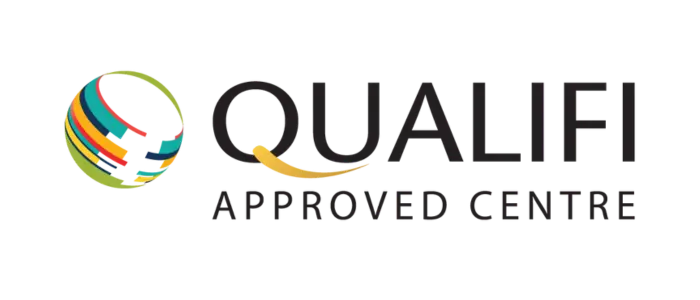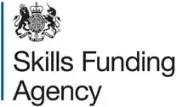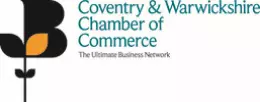IGCSE English First Language at a Glance
- Start date: Anytime
- Location: Online
- Study pace: Flexible (no deadlines or timeframes)
- Qualifications: IGCSE English-First Language
- Assessment: Written Examination
- Includes: 1-2-1 tutor support, all course materials and more
IGCSE English – First Language is designed for learners whose native language is English. The course aims to equip students with the essential skills to communicate clearly, effectively, and accurately both in speech and writing.
This IGCSE equips students with strong communication skills, including clear and persuasive expression, mastery of language mechanics, and a rich vocabulary. The course fosters personal style and critical thinking skills through extensive reading and analysis of texts.
How it works
Students on our IGCSE English- First Language course can start at any time and study entirely online, offering complete flexibility. The course is designed to provide learners with a solid understanding of business and the skills needed for further education or a career in English.
Each subject consists of guided online learning hours, with additional optional materials such as recommended exercises, readings, digital resources, and self-test tasks.
To be awarded your IGCSE qualification, you will be assessed through written examinations completed at an exam centre. You can find out more about exam centres and where to locate them here.
To complete the course, you will benefit from 1-2-1 tutor support and all necessary course materials. Upon passing the course, you’ll receive an IGCSE English- First Language qualification that will prepare you for progression to A Levels, higher education, English-related careers or studying a Level 3 qualification at Online Business School.
Throughout the course, you’ll have access to various support resources, including webinars, social learning forums, and additional materials to enhance your learning experience.
Click here to view a Sample Certificate
Sitting the Exam
To sit an IGCSE exam, start by locating a centre in your country that accepts private candidates. Register with them once you have found a suitable centre and pay any necessary fees.
Before the exams, ensure that your statement of entry is accurate and bring valid identification to each exam. Maintain communication with the centre or exam provider for any exam-related inquiries, including special access arrangements.
After the exams, inform the centre or exam provider if you need any special consideration. Collect your results and certificates from them, and if necessary, request reviews of marking or appeals through the centre or exam provider.
Online Business School are here to support you throughout the IGCSE exam process. We will help you locate an approved exam centre, assist with registration, and ensure you meet all requirements and deadlines.
We will provide advice on exam preparation, verify your statement of entry, and clarify identification and access arrangements.
Post-exam, we will guide you on requesting special considerations, collecting results and certificates, and requesting reviews of marking or appeals. Our support ensures you have the necessary resources at each step.
Am I eligible for this programme?
The typical age at which people choose to complete the IGCES is 14 to 16, but anyone over the age of 14 can enrol on this course. You also do not need any previous qualifications to be eligible for this course.
Cost and payments
IGCSE English-First Language: £399
Enrol with a £50 deposit and then £14.55 a month for 24 months, interest-free.
Students can make payment using one of the following methods:
- Credit or debit card
- Bank transfer
- Interest-free monthly instalments
- PayPal
- Western Union
Career Progression
Upon completion of this course, students will have the foundations and fundamental knowledge needed to study A levels or a Level 3 qualification with Online Business School.
Subject Content
The skills covered in the syllabus are outlined below.
Reading
- Demonstrate understanding of written texts, and of the words and phrases within them
- Summarise and use material for a specific context • Develop, analyse and evaluate facts, ideas and opinions
- Demonstrate understanding of how writers achieve their effects and influence readers
- Select appropriate information for specific purposes
- Recognise and respond to linguistic devices, figurative language and imagery.
In developing reading skills, candidates should engage with a range of genres and text types from the twentieth and/or twenty-first centuries, including literature, fiction and non-fiction, and other forms of writing, such as discursive essays, reviews and articles.
This study should include focus on writers’ use of language and style and the ways in which writers achieve effects and influence readers.
Candidates should study how influence may include fact, ideas, perspectives, opinions and bias.
Writing
- Express what is thought, felt and imagined
- Organise and convey facts, ideas and opinions effectively
- Demonstrate a varied vocabulary appropriate to the context
- Demonstrate an effective use of sentence structures
- Demonstrate an understanding of audience, purpose and form
- Demonstrate accuracy in spelling, punctuation and grammar.
As developing writers themselves, candidates should be introduced to a range of writing skills, including the ability to create and compose texts with a variety of forms and purposes, e.g. descriptive, narrative, discursive, argumentative and persuasive. This study should include a focus on the following text types: letter, report, article, journal, speech, interview and summary.
Speaking and Listening
- Describe and reflect on experience, and express what is thought, felt and imagined
- Organise and convey facts, ideas and opinions effectively • Understand and convey complex ideas
- Communicate with clarity, focus and purpose
- Communicate appropriately for the context
- Engage appropriately in conversation.






